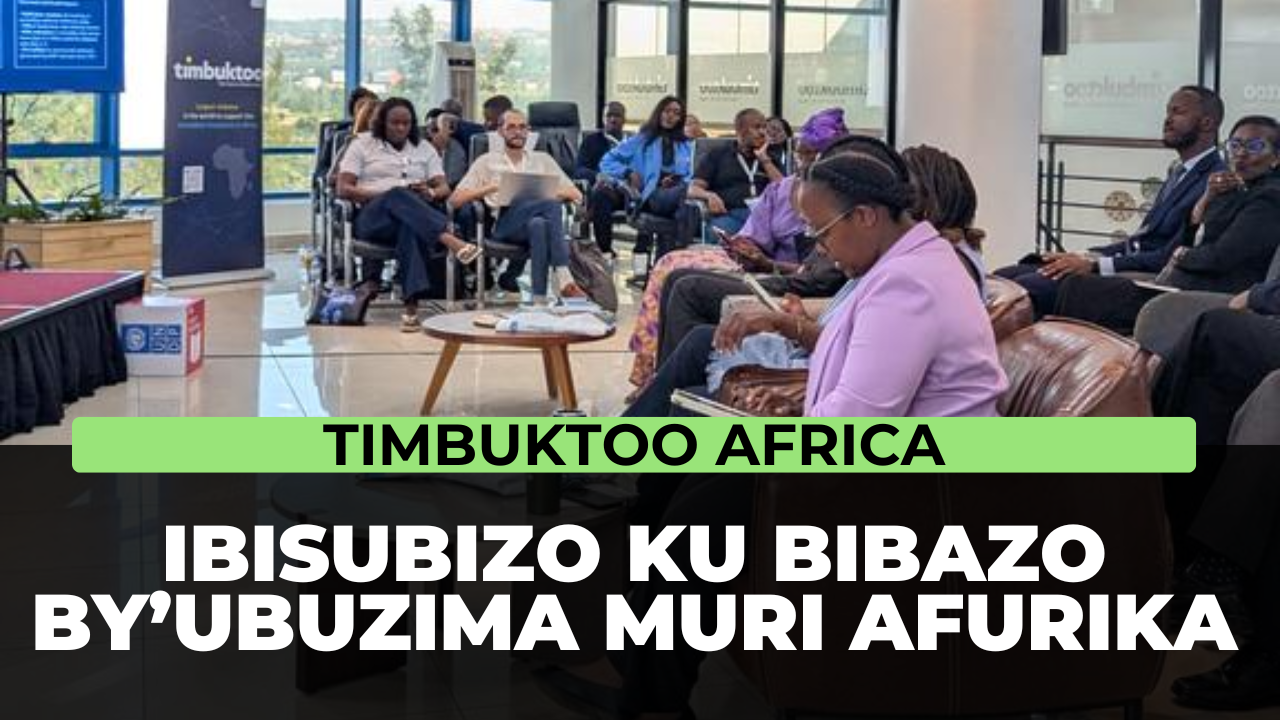Typically, when you get sick, you are taken to the hospital or health center, or in Rwanda, there are some trained individuals who can provide fast aid near you. But that is not a reality in many African countries where people still walk Kilometers to get fast aid or get medical consultation, or proves challenging to even find a pharmacy with medicine you are looking for. These, and many other problems in Africa, is Africans’ responsibilities to solve them.
That is why in November 2024, Timbuktoo Africa Innovation Foundation, United Nations Development Programme (UNDP) and the Government of Rwanda came together to launch Timbuktoo Healthtech Hub to support startups solving health problems in Africa.
Current status of the program
When it started, out of 957 startups that applied, 40 were selected and for the past 6+ months have been receiving support from this program working on their projects. Support they receive include mentorship, funding and resources.
After this time, 15 startups showcased what they have been working on in an event that took place in Timbuktoo office in Kigali. 7 of these startups have already raised $6M in this time, and all startups in general employed 69 people, and benefited more than 3.3 million people.
Some startups and what they are doing
From Rwanda, BAHO Nursebot has built robots that are used in medical screening of Non-Communicable Diseases (NCDs). Igafri Ltd is also transforming health outcomes through capacity building for healthcare professionals. They use cutting-edge technology to deliver these training. Another startups that provides open sourced AI screening and counselling is MedTech Africa from Nigeria.

The director of Gideon Inno Textiles, Segametsi Songwane from South Africa claimed that there are times when we go to the hospital with certain illness and come out with another. She said this and showed their antibacterial products and textiles used in hospitals. They make these with a technology that kills microbes and bacteria, and they make it from scratch. She also mentioned to me that they face a very big problem of compliance.
Zuri Health from Kenya makes it easy for you to get consultation with doctors, specialists, nutritionists, and therapists using your phone. Good news from them is that they are starting operations in Rwanda very soon.

Another problem that was tackled is related to pregnant women who has risks of miscarriage or death if not cared for well. MedTrack Technologies from Ghana is building a technology that will integrate medical information to national ID data to make it easy to access user information anywhere and save mothers early. Malaica from Kenya has also reduced risks by working with mothers and caring for them while pregnant to mitigate risks, and they claim that all mothers under their care are well taken care of and give birth with no problems.
D-WEE Healthcare from Tunisia witnessed problems with manual wheelchairs and electric wheelchairs and their combined both their benefits to mitigate problems on both sides. Their wheelchairs, as they said are not heavy and do not tire a user. Very user friendly.

With so many other startups we did not mention, what they have in common is using the technology to solve problems they see around them. Not only in health, but this can be done for any problem.
What does this mean?
Officials present included Director of Innovation and Emerging Technology at MINICT, Esther Kunda, and in her speech/pitch, she asked organizations present to support startups, but also urged to think about how resources available can be utilized to build market fit products for the whole of Africa.
The showcase ended with a networking session, where we got a chance to connect to these startups and we learned more about what they are creating. I was particularly motivated by their unwavering commitment to building to make life better for Africans, and not waiting for foreign solutions for African problems. They take charge in finding solutions for our problems.
We will keep informing you on what is going on in startup space of Rwanda and Africa, and if you would like to stay in touch, subscribe on this form, we will inform you of our new stories.
Stay safe.



